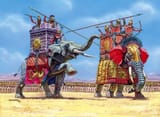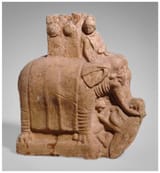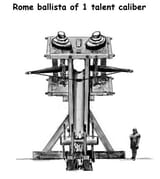>>64235899 (OP)
>Why were war elephants not that useful?
If they weren't that useful, why were they used for over 2, 000 years? Don't let the lack of Roman adoption confuse you, it still took them hundreds of years for them to adopt cataphracts as a useful military tool for example.
>How important were they REALLY to Hannibal's attack against Rome?
Since all of his elephants starved, froze, or died of sickness before fighting in Italy, I don't really think they really mattered.
Now on to some pros and cons of elephants.
>Cons
Super expensive: They take a lot to feed, and if you armor them that takes a lot of metal. You also need the crew which ranges from a mahout (elephant 'pilot') and a dude on the back with either pike, javelin, or bow, all the way up to a mahout, a crew of three on the back, and between two and four guards for each leg.
Easy to spook: We know people prepared the elephants for war by training with whips, and slashing and stabbing at them in an attempt to get them used to pain, and supposedly by giving them wine before the battle, but they're still herd animals. If the lead elephant dies or runs away the rest of the herd will follow, generally the opposite from the enemy and thus right through your own forces.
Not that good at range: Most elephant crews in history had ranged weaponry (Early Diadochi forces seemingly an exception), but that didn't mean they were that useful. The most common way to defeat elephants were to have skirmishers run up and engage them, and they couldn't really do anything to them in return.
Short life in captivity: Elephants in the wild can live up to 70 (Asian) or 50 (African) years, and in captivity it drops to 19 & 17 years according to a study in 2008 of elephants in zoos. The weight from towers and howdahs also damages the spine of the elephants leading to worse health which can be seen in the elephants that give tourist rides.
>1/2






